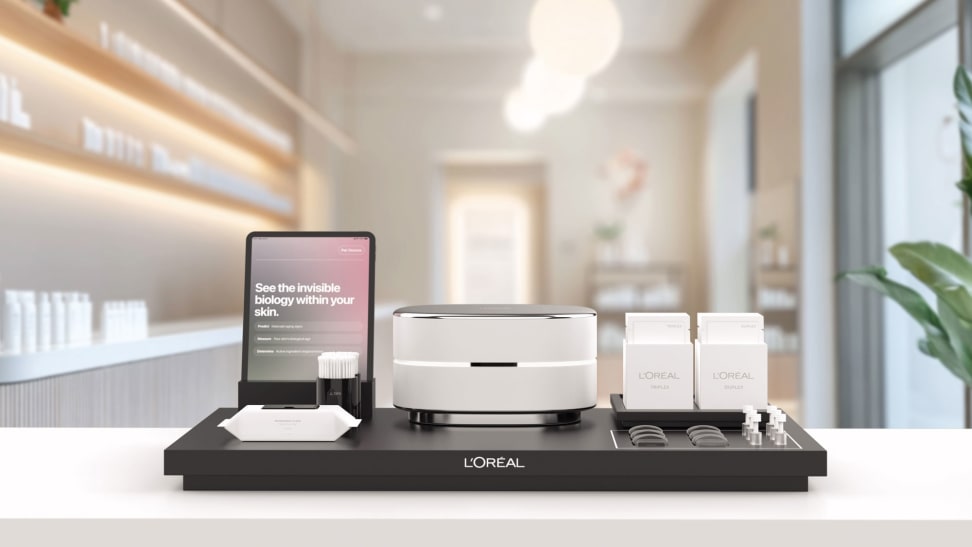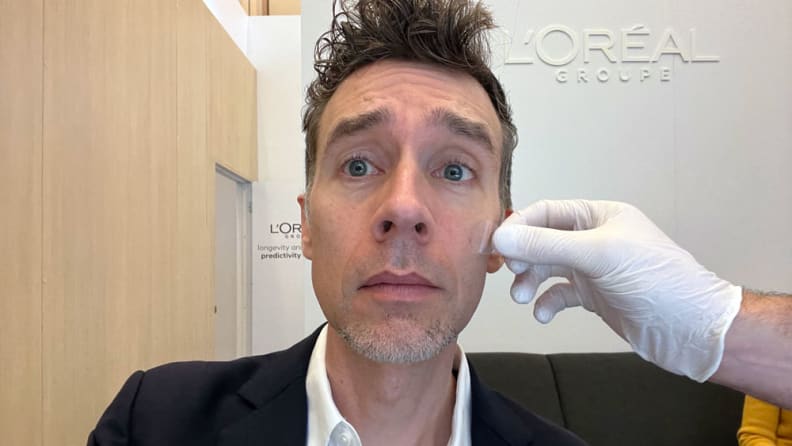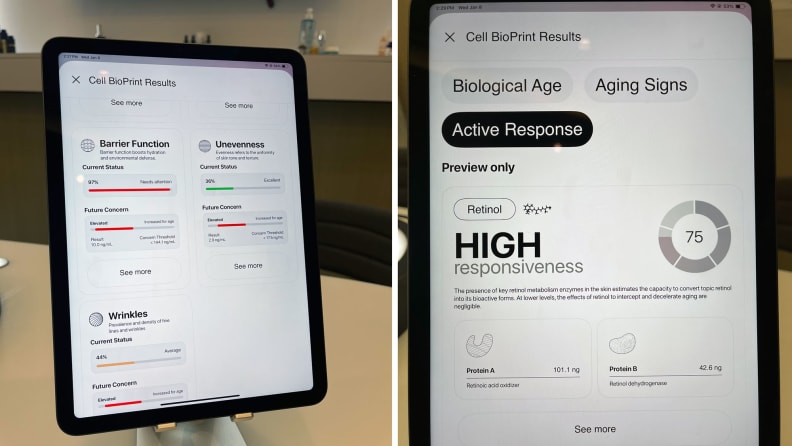Hands-on: What L’Oreal taught me about my skin health at CES
L’Oreal’s new Cell BioPrint skin health analyzer was 10 years in the making, and I tried it
 Credit:
L'Oreal
Credit:
L'Oreal
Products are chosen independently by our editors. Purchases made through our links may earn us a commission.
This week at CES, L’Oreal took the wraps off a new skin care analyzer with a surprising level of technical innovation that just might change your impression of the brand. The Cell BioPrint is a retail-ready device that determines your skin’s problem attributes and then steers you towards—or away from—common skincare ingredients that will work for your skin’s chemistry. Sound too good to be true? That's what we wanted to find out.
While “protein spectroscopy” is not a phrase commonly thrown around at the Nordstrom makeup counter, that’s essentially what we’re talking about here. I’m no cosmetics expert (although in the past we've covered haircare, makeup, and other beauty products extensively) but the science intrigued me and I was fortunate enough to get a hands-on demo.
How the L’Oreal Cell BioPrint works
The L’Oreal Cell BioPrint is the result of a collaboration with Korean company NanoEntek and, they claim, the result of a 10-year journey to create a product that could better predict skin care recommendations.
L’Oreal’s data suggests that skin care products have a disproportionately high rate of dissatisfaction compared to all beauty products, perhaps because skin is complicated, there are a huge number of products on the market, and results of a given product on your skin can take weeks or months to become apparent. The Cell BioPrint is intended to cut to the chase and tell you which ingredients your skin needs.
The L’Oreal Cell BioPrint is a whole system, complete with some hardware and some consumables. The process begins by dabbing each cheek a few times with a small, clear sticker to collect (dead) skin cells. The sticker is then placed in a liquid solution that breaks down the cellular walls and gets at the good stuff inside—the good stuff being the proteins.

Getting skin cell samples is quick and painless, but still a little awkward.
The real work begins when the solution is placed in the Cell BioPrint machine, a type of spectroscope that bears a resemblance to a Mac Mini. Inside, the machine is scanning for five specific proteins that L’Oreal says can serve as biomarkers indicating your skin’s general longevity, as well as your likelihood towards certain traits: wrinkles, unevenness, barrier function, and a handful of others.
The test results appear on an app that works over Bluetooth, and the whole process takes less than five minutes.
How skeptical should you be?
The big test result metric you’ll want to see on the app is your “biological age”, which is essentially how old your skin appears to be based on its chemistry. But first, you’ll be prompted with a question about your actual (or “chronological”) age.
It’s at this point that a little skepticism is warranted. After all, if the product is so good, shouldn’t it know my skin’s age without knowing my proper age? Perhaps. But this is a product demo after all, and on an unfinalized product, so we’ll extend some credit.
After all, the science of analyzing proteins is fairly straightforward and NanoEntek is a legit diagnostics company. The interpretation of the data is where the real dilemma lies because interpretation is always up to… well, interpretation.
What I learned about my personal skin health results
My own test results from the L’Oreal Cell BioPrint were not as devastating as I had dreaded. My skin’s biological age matched up perfectly with my actual age (thank you, sunscreen!). As you can see from the screenshots, my propensity towards unevenness and wrinkles was average, and the deplorable Skin Barrier score was likely a result of suddenly living in the Las Vegas desert for a few days. The data also concluded that my skin would likely be highly responsive to retinol, based on the two of the protein levels.

Test results appear on the app, offering insights into your skin's chemistry and recommendations on what products and ingredients to use.
As you might have expected from the beginning, the final step in this whole process has the app recommending a variety of skin care products for you to buy. I didn't buy anything, but it certainly has me re-thinking retinol.
Overall, I was impressed with the depth of research that appeared to go into the Cell BioPrint. Once it hits the market in late 2025, we’d love to get this in the hands of a dermatologist for more hands-on testing. Until then, we can only moisturize, sunscreen, and wait.
